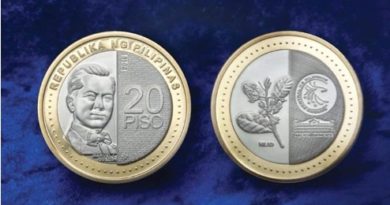Investing in Equity Funds: A Primer
By Rienzie P Biolena, RFP ®
Investing in the stock market has always been a consistent way to get higher returns—returns that can beat inflation as well as add value to one’s portfolio. In a single year, one can gain as much as 100% (or more) return, given favourable market conditions. Not all, however, have the time nor expertise to invest on an individual capacity, and here is where pooled funds have the advantage.
From the term itself, pooled funds aggregate or “pool” in people’s money and invest them in basket of issues or securities which, in turn, are being handled by a fund manager. These funds can either be in the form of unit investment trust funds (UITFs) or mutual funds. UITFs are offered by banking institutions and are subject to the supervision of the Bangko Sentral ng Pilipinas. Mutual funds, on the other hand, are open-end investment companies supervised by the SEC in which an investor becomes a shareholder of the fund – the business of which is making money through the trading of securities and issues.
For the prospective investor who wishes to invest in the stock market but lacks the time nor the expertise to track the market or trade by himself, going into pooled equity funds is very much recommended. It enables the investor to get the following benefits:
-
Instant diversification at less the cost.
Investing in an equity fund gives the investor a ready basket of stocks that are being traded on his behalf. For as low as P5,000, an individual can already have investments in all the stock issues that the fund is invested in. Depending on the fund manager, some equity funds contain between 20-30 stocks: imagine having to automatically own these stocks through equity funds, giving the investor more bang out of every buck.
-
Higher returns
Savings accounts today average 1% per year, while time deposits average 2.75%, gross. With the Philippine inflation averaging at 5.7% since the mid-1990s, money kept in banks would be losing value. Investing into equity funds enable investors a boost in their overall portfolio, with returns that can average 30% per year. Of course, the returns are subject to the ebbs and flows of the prevailing market conditions, but investing in equity funds can give as much as 250% for three years. The key for investing in equity funds is investing for the long-term; that is, for a period of at least two or three years or more.
-
Expert fund management.
With fund managers— technical experts— that dedicate themselves to tracking the market and growing the fund’s portfolio, investors have no need for timing the market and micro-managing their stock portfolio, giving them more time to focus more on their business, work and family.
-
Professional advice.
Bank managers and financial advisors give economic updates as well as sound financial advice to investors and prospective investments. But before going into frenzied buying into equity funds, a prospective investor must first consider the following:
-
Check if it suits you.
Not all should be investing in equity funds nor one should put all their investment in it. One’s lifestyle, financial objectives and life stage should greatly determine if investing in an equity fund is recommended, of which a Risk Profile Assessment or Client Suitability Test can help determine. Generally speaking, a younger investor can take more of equities into their over-all portfolio than a retiree. Banks and mutual fund companies are required to provide this to prospective investors so they can check if investments in equity funds suit their needs.
-
Check the company.
Always check the institution that is offering it. Is the company of good repute? Are the people behind the company—the management—experts in the field? It is best to choose companies that are known in the industry, backed with years of experience, mastery and expertise in managing equity funds.
-
Historical performance.
“Past performance is not a guarantee of future results,” as pooled funds always disclose, but with historical performance, gives you a feel of how the fund has fared over the years: does it beat the market and its peers or is its returns remain below? Information for mutual funds can be seen at www.pifa.com.ph while UITFs can be seen at www.uitf.com.ph. Bloomberg also has a site (//www.bloomberg.com/markets/funds/country/philippines/) on all funds that are available in the Philippines.
-
Check the portfolio composition.
Not all equity funds are created equal. Check what’s inside the fund. What stocks is it invested in? What are the weightings? The stock market is volatile as it is, but some equity funds, for example, invest only in blue chip stocks, while some invest in more volatile stocks, or stocks that are speculative.
-
Check the sales load.
Some funds charge front-end entry fees, back-end, or both. Check these as they can affect the return of an investment.
-
Rienzie P Biolena, RFP ® is one of the pioneering Registered Financial Planners in the Philippines, having taken up the first RFP Program in 2005. He is a former banker, a writer, and now a Senior Financial Advisor for a leading asset management company in the country, and regularly gives out talks, seminars and workshops on financial planning. He can be reached via rienzie.biolena@gmail.com.





I really like your website.With a wealth of information articles by far my favourite place to visit.keep the good work going.thanks
Thank you for the handful of useful information you were posting in this site. Very much helping me to do and keep track on my wife’s investment choices…. Kudos